Covid in Wales: Isolation for double-jabbed contacts to end
- Published
- comments
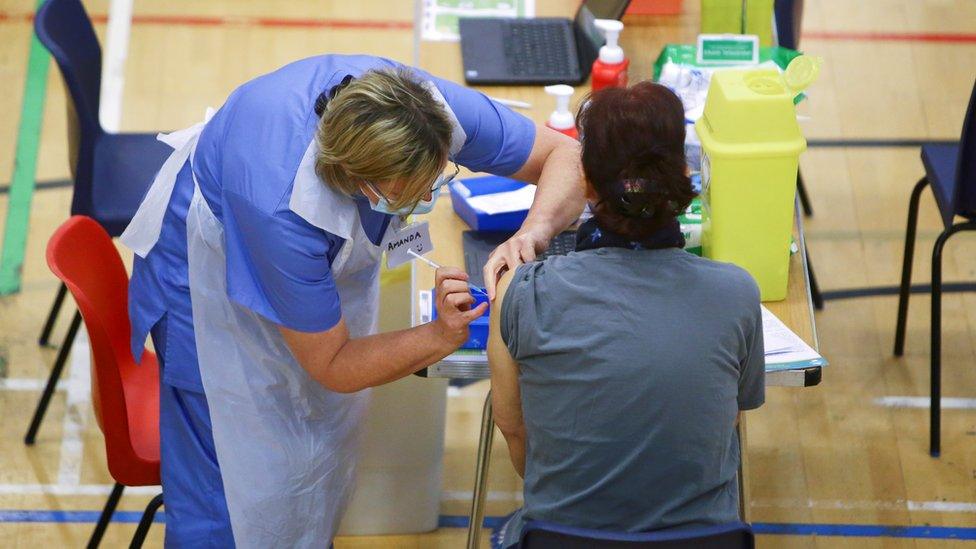
People who have had two vaccine doses will not have to isolate if they hear from a contact tracer
Wales will become the first UK country to stop asking fully vaccinated adults to self-isolate after close contact with a positive Covid case.
The change will affect more than two million people who have received two jabs.
Under-18s will also be exempt under the new rules being brought in from 7 August.
The Welsh government said the decision would "ease pressure on vital services" after a recent rise in cases.
"We have got to make sure that our actions are proportionate and that we consider other harms," Wales' Health Minister Eluned Morgan told BBC Radio Wales.
Contacts of people who test positive will continue to be advised by Test, Trace and Protect to take PCR tests two days after being alerted, and again on day eight.
Ms Morgan said she hoped people would act responsibly: "We have got to rely on people as we're coming out of the most severe part of the pandemic to take things seriously - we can't hold people's hands forever."
The rules will come into effect the same day ministers plan to scrap most Covid rules in Wales.
The move was welcomed by opposition parties, although Plaid Cymru urged the Welsh government to monitor the impact of the policy "extremely carefully".
Labour's leader in Westminster, Sir Keir Starmer, called for England to bring forward its relaxation of self-isolation rules from 16 August to match the date in Wales.
"This has been a summer of chaos for British businesses and British families. The Tory government has never been able to explain the logic of their self-isolation rules and has just repeated the same mistakes over and over again," he said.
But UK Transport Secretary Grant Shapps told Sky News: "We are always keeping it under very close review.
"The reality is that people putting themselves in self-isolation has been a factor in saving a lot of lives because it turns out that one in three people who are requested to self-isolate do end up developing symptoms, so it is, if you like, the only remaining measure that is being taken at the moment, because of course all the other measures have been dropped at the fourth unlock stage on the 19 July."
Scotland is due to introduce the measure on 9 August.
But ministers have said that keeping the self-isolation rules in place until 16 August is an important precautionary measure.


Cases in Wales fell for the ninth day in a row on Friday, after rising since the start of June.
But Wales' case rate has been below all other UK nations and English regions for six months, while 12 local authority areas were among the 20 lowest in the UK.
People who test positive for Covid will still need to isolate for 10 days, regardless of whether they are fully vaccinated or not.
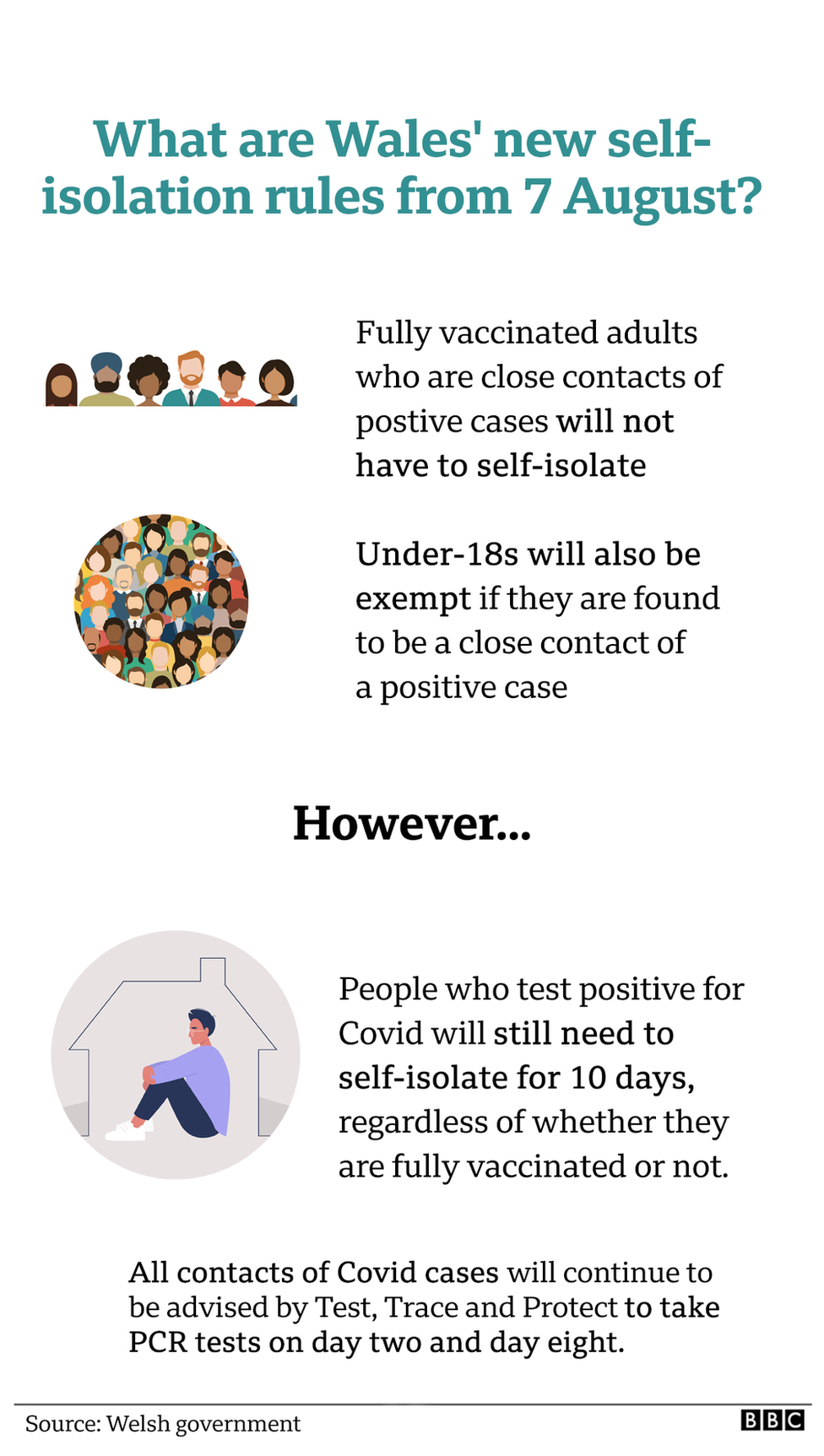

The move to ease self-isolation rules in Wales will be implemented just over a week before similar changes planned for England.
The changes will apply to those who have had a second jab at least 14 days before they are identified as a close contact.
On 7 August, the Welsh government also plans to end rules on numbers that can meet indoors, end social distancing laws and allow nightclubs to open.
The decision is yet to be confirmed, however, and face masks will still be required in shops, health and social care settings and on public transport.
Self-isolation triggered by rising cases has been blamed for staff shortages across the UK, although Wales has not put in place the exemptions seen across the border.
Instead of being asked to stay home, fully vaccinated people will be given advice and guidance on how to protect themselves by contact tracers.
Members of the public will be "strongly advised" not to visit hospitals and care homes for 10 days.
Welsh ministers also promised "extra safeguards" such as daily lateral flow tests for those working with vulnerable people, including health and social care staff.
'Protection against Covid'
First Minister Mark Drakeford said self-isolation was a "powerful measure" to "stop the spread of the virus".
"But we know a full course of the vaccine offers people protection against the virus and they are far less likely to contract it when they are identified as close contacts," he added.
"This means they no longer need to self-isolate for 10 days."
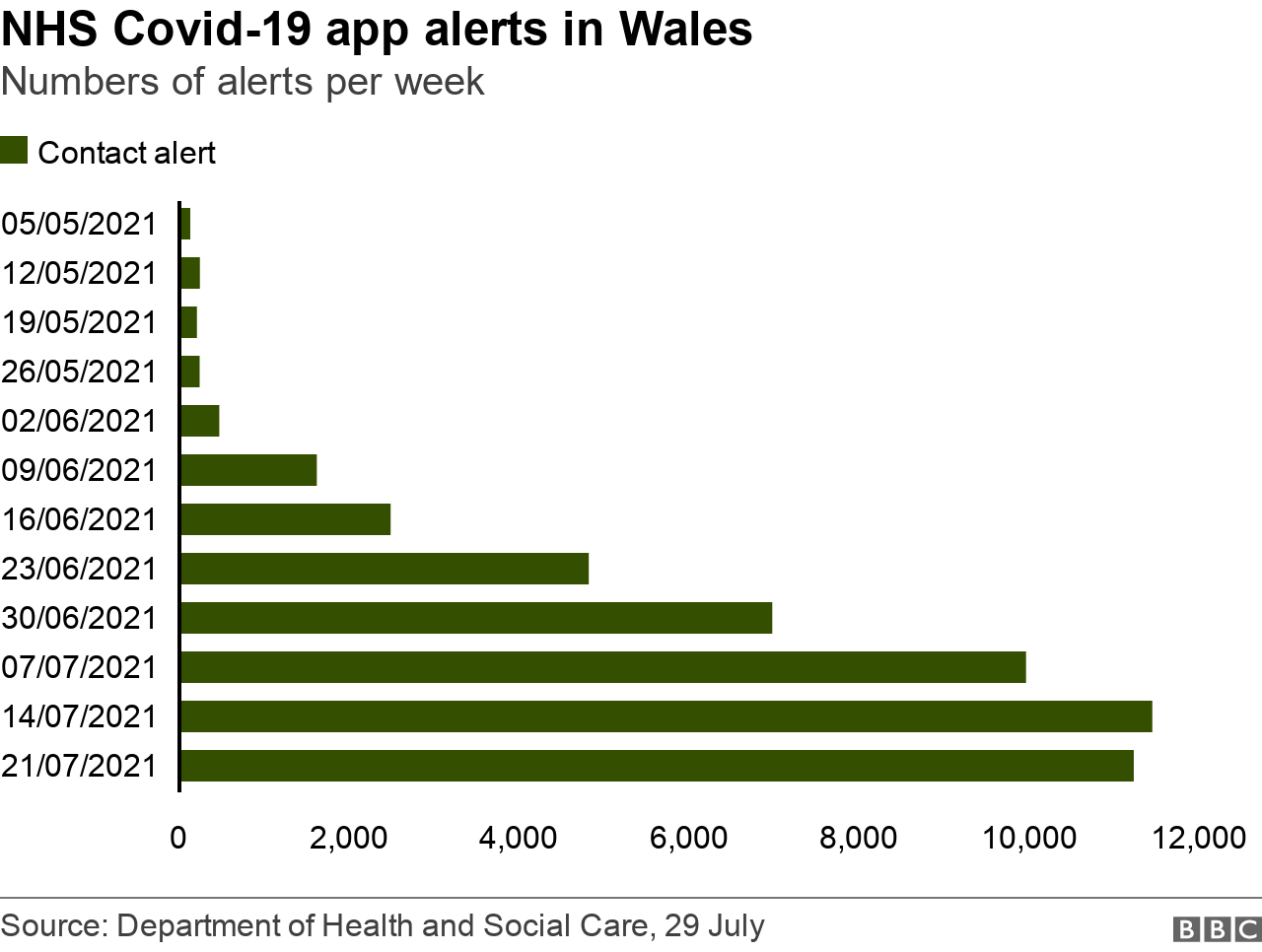

People told to self-isolate by a contact tracer must do so by law.
It is different to receiving a self-isolation request from the NHS Covid app, which is not legally enforceable.
Contact tracers in Wales reached 14,666 close contacts in the week ending 24 July, down from 15,718 the week before.
Through the app, 11,211 people in Wales were asked to self-isolate in the week ending 21 July, down slightly from 11,429 the week before.
The decrease in Wales' Covid case rate is reflected in the drop in infections in younger people over the past week.
The latest Public Health Wales (PHW) figures show 18 local authority areas are seeing a drop in case rates among the under-25s.
Despite the rise in cases over the past couple of months, far fewer people have needed hospital treatment than during the second wave.
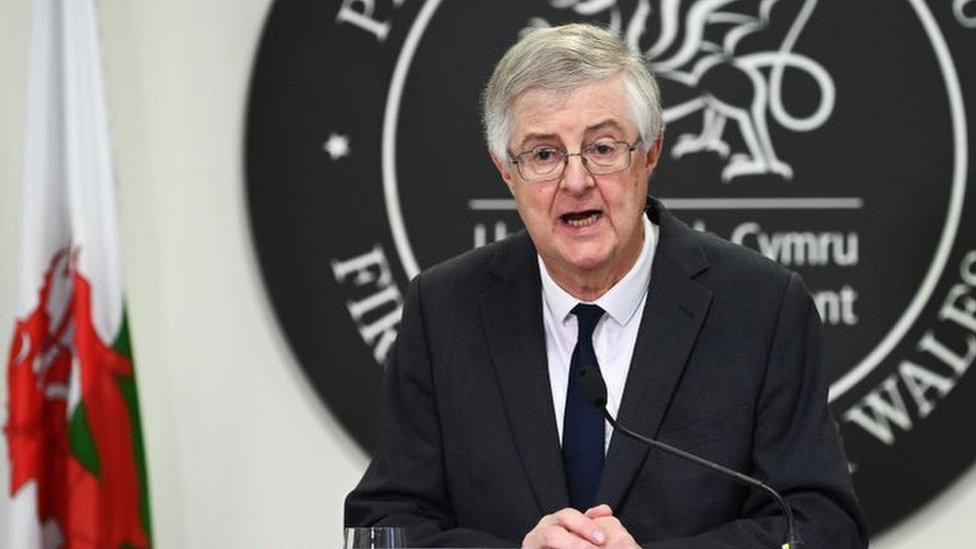
Mark Drakeford said fully vaccinated people are less likely to contract the virus
Currently 64.3% of the population has had a second jab in Wales - 2,036,670 people - the second-highest full vaccination rate in the world after the United Arab Emirates.
But a quarter of people under 40 years old - 226,160 people - have not even had a first dose.
The Welsh government said the Test, Trace and Protect service will use the Welsh Immunisation Service to identify adults who are fully-vaccinated.
What has been the hospitality sector's reaction?
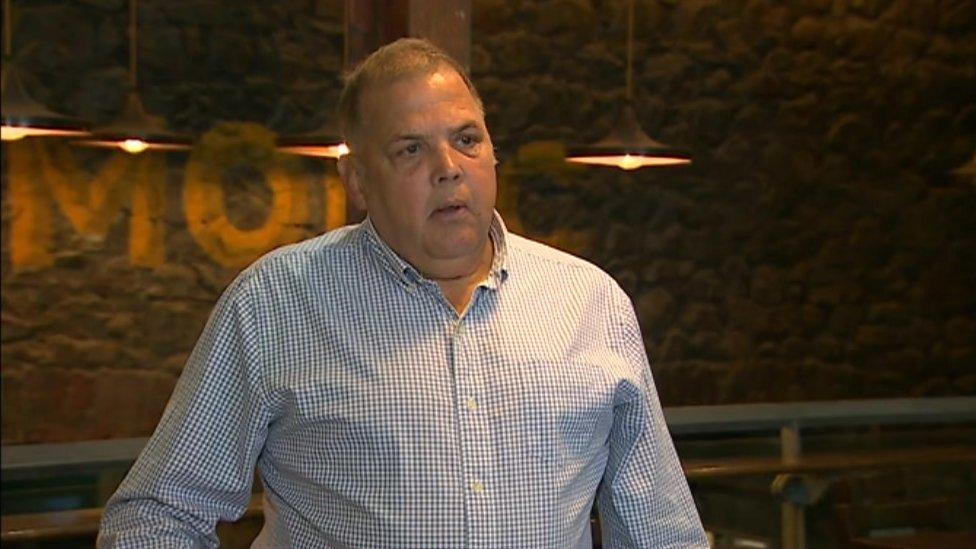
Nick Newman said the Welsh government had "dragged their feet" on issuing guidance for the hospitality sector
Nick Newman, chairman of the Cardiff Licensees Forum and the manager of the city's Philharmonic pub, questioned why the change was over a week away.
"I've got to welcome it in the one sense because it's good for our businesses and good for our workers, but if it's right on the 7 August, surely it's got to be right now," he said.
Masks will not be required in pubs, cafes and restaurants and social distancing laws will go on 7 August - businesses will instead be required to carry out risk assessments to decide what measures are needed in their venue to keep people safe.
Mr Newman said what was expected of pubs after that date had not been made clear: "Welsh government have dragged their feet... given that the Welsh government is putting additional emphasis on risk assessments... we need to know exactly what they're looking for."
Morgan Austin, owner of Johnny Doughs Pizza in Llandudno, said: "I really welcome the news… fingers crossed it's going to totally change the game for us, especially in these seaside towns where it's been pretty relentless."
He said staff having to isolate after being pinged by the NHS app had forced him to close one of his three restaurants.
He said: "I get there's been a pandemic but sometimes the stringency of some of the people being called up - it has put pressure on us staffing the businesses."
What has the political reaction been?
Plaid Cymru health spokesman Rhun ap Iorwerth welcomed the announcement but urged ministers "to monitor the impact of this policy extremely carefully".
"If cases begin to rise yet again, they must be prepared to act quickly and appropriately," he said.
The Welsh Conservatives' health spokesman Russell George said his party had been "calling for changes to the obsolete isolation rules for those fully vaccinated for some time, and I'm pleased Labour ministers have finally heeded those calls".
He added: "The Covid case rate in Wales - like elsewhere in the UK - has fallen for eight days in a row and we need to trust the vaccine programme and get our economy on the road to recovery."
Related topics
- Published29 July 2021
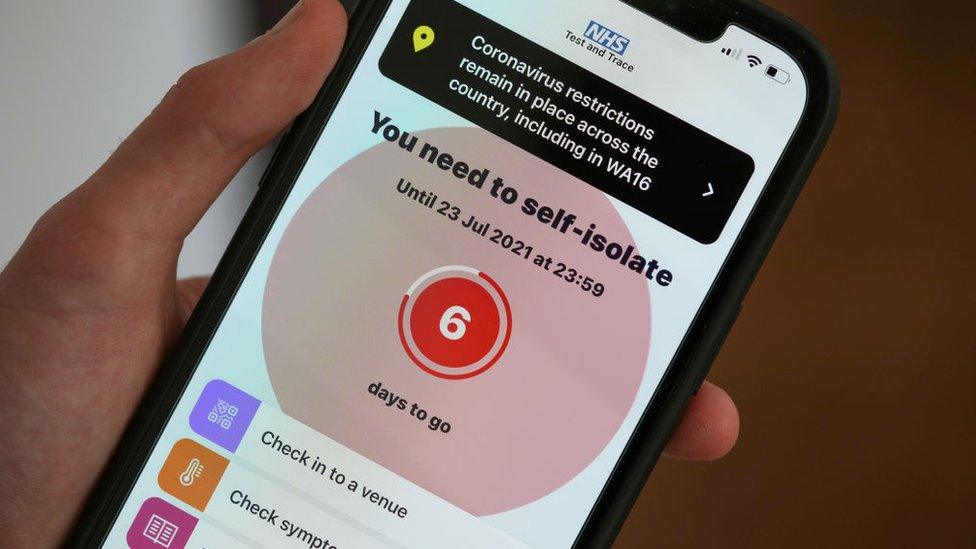
- Published19 July 2021
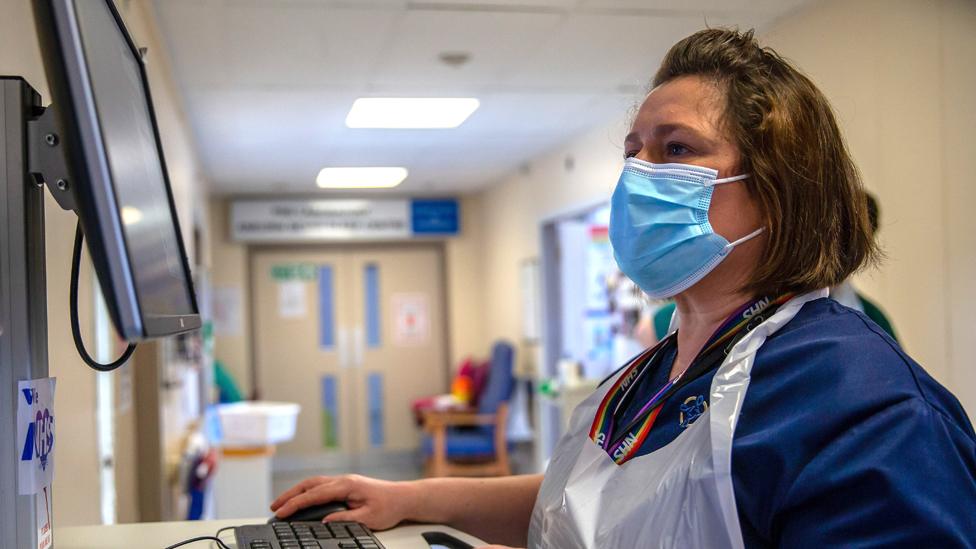
- Published14 July 2021
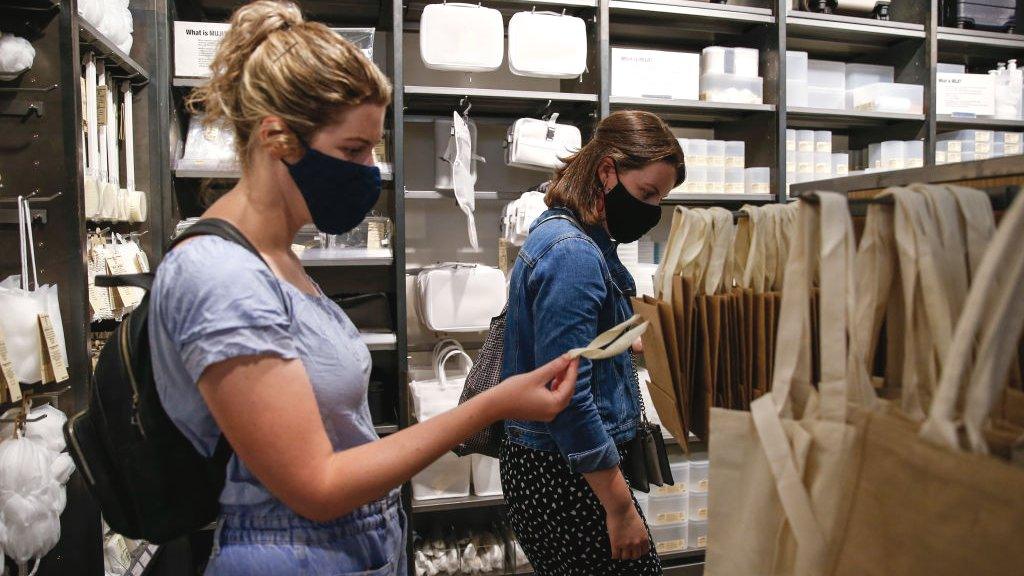
- Published28 July 2021
